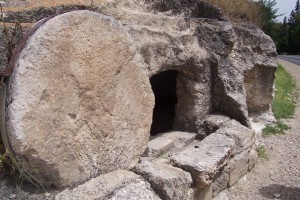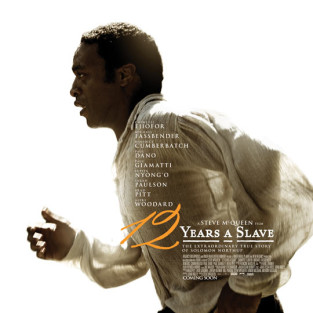 Lectionary #90, Tenth Sunday of Ordinary Time
Lectionary #90, Tenth Sunday of Ordinary Time
June is a time of year when, despite the sun and the warmth, and the generally relaxed pace of a college professor’s summertime life, I am haunted by grief. My mother died towards the end of June 1999, after a long battle with lung cancer. The days of June are marked with memories of lasts: her last hospital admission, her last release from the hospital, the last time her children were all gathered around her, the last time she saw each of her granddaughters, the last time she and I were really able to talk, before the end, where every breath was a battle for her. And, of course, that last terrible night where her breath left her body for the last time and we knew that there was nothing left to be done.
So, with grief-filled June upon me, I admit that my first reaction to these readings was one of resentment. Why did God not send a prophet like Elijah to restore the breath to my mother’s body? Why did God not visit his people when my family and I were gathered around my mother’s deathbed in prayer? Why do I not get to pray with the psalmist “I will praise you, Lord, for you have rescued me…. You changed my mourning into dancing”? How many of us, strong in faith at our best, look back (or look around) at some of our darkest times, our deepest challenges, our most powerful losses, and wonder where was (or is) this God who is so often rescuer and deliverer, and are tempted to despair?
When I find myself drawn to despair, there are a few things that draw me toward hope. One of these is the simple realization that we all die, even these widows’ sons who were raised by Elijah and by Jesus. Though these were incredible displays of the power of God, they were resuscitations, not resurrections. Perhaps they were healed and lived to a ripe old age, but they died again, and have been dead for centuries now. I remember sitting by my mom’s hospital bed as she discussed with her doctor whether she should sign a DNR, the paperwork that asks medical professionals not to attempt resuscitation. I remember that she made a joke with him, asking whether he could bring her back with a brand new set of lungs that would make it easier for her to breathe. He smiled gently and said he was sorry, but it didn’t work like that. She said, “Then please don’t bother,” and signed the form. I suspect that my mom would have told Elijah or Jesus the same, had they stopped by and offered to resuscitate her. That may be a strange comfort, but it is a comfort nonetheless.
The deeper comfort is that we are promised something much greater than resuscitation. We profess each Sunday that we believe in the resurrection of the dead, which promises much more than resuscitation. The resurrection of Christ and the belief that somehow we who are united to Christ in baptism will rise with him is the promise that death has already been defeated. It is hard to remember that when we are in the very midst of our grief. Death can seem so final, so powerful, so defeating. It is hard to remember, in those moments, the glory of Easter, the bewilderment of the women at the tomb, the doubt-turned-faith of Thomas as he probed the wounds of Christ with his own hands, the wonder of the disciples whose hearts burned as he broke open the Scriptures and who finally knew him in the breaking of the bread.
I suspect it is no accident that these readings are the ones that mark our return to Ordinary Time. We have been feasting on the glory of Easter, of Pentecost, of Trinity Sunday and the Feast of Corpus Christi. And now, we see this much more ordinary work of God: hearing a widow’s prayer and saving her only son. Ordinary Time for believing Christians can be a trying time. We try to remember the magical wonder of the Incarnation at Christmas, the ascetic challenge of Lent, the glory of the risen Christ at Easter, the pouring out of the Spirit at Pentecost. It can be hard, though, in the ordinary sufferings and losses of our lives, to remember that the all-powerful God has walked among us and has made the extraordinary ordinary.
The 20th century poet W. H. Auden captured this challenge quite simply and beautifully in his poem “For the Time Being,” part of his much longer Christmas Oratorio.
[…]In the meantime
There are bills to be paid, machines to keep in repair,
Irregular verbs to learn, the Time Being to redeem
From insignificance.
One of the very real challenges of the Christian life is living the struggles, sufferings, and griefs of our daily lives in these in-between-times with the conviction (or at least the hope) that, in the resurrection of Christ, God has already won the victory that has defeated death and will wipe away every tear. Jesus’ raising of the widow’s son is a foretaste of that hope, of prayers answered, of suffering ended and grief turned to joy. The good news here is that we worship a God who rescues, a God who saves, a God who heals and a God who defeats every enemy, even death. If we happen to hear the word today and remember prayers unanswered or grief unconsoled, it is important to remember that the good news for these widows is not in fact bad news for us. It is a reminder that God does hear our prayers, every one, and seeks to give us fullness of life. We need to resist any hint of envy or bitterness and seek to remember that in rising from the dead, Christ has already defeated death much more totally than these stories show, and we who are united to him in baptism, we who remain united to him in the Eucharist, are indeed raised with him. So let us, too, glorify God and say, “God has visited his people.” Alleluia.




When mt husband died in agony, calling out “Sue, help me!” I asked God why should such a faithful man, such a wonderful husband and father, such a truly religious man, die like that? Why could he just pass easily into the next world? I felt an answer “My Son died in agony”. So I asked why couldn’t I help him? HE called me and I did, could do, nothing! The answer “My Son asked “Why have you forsaken me”. Suddenly I was at peace with what happened.